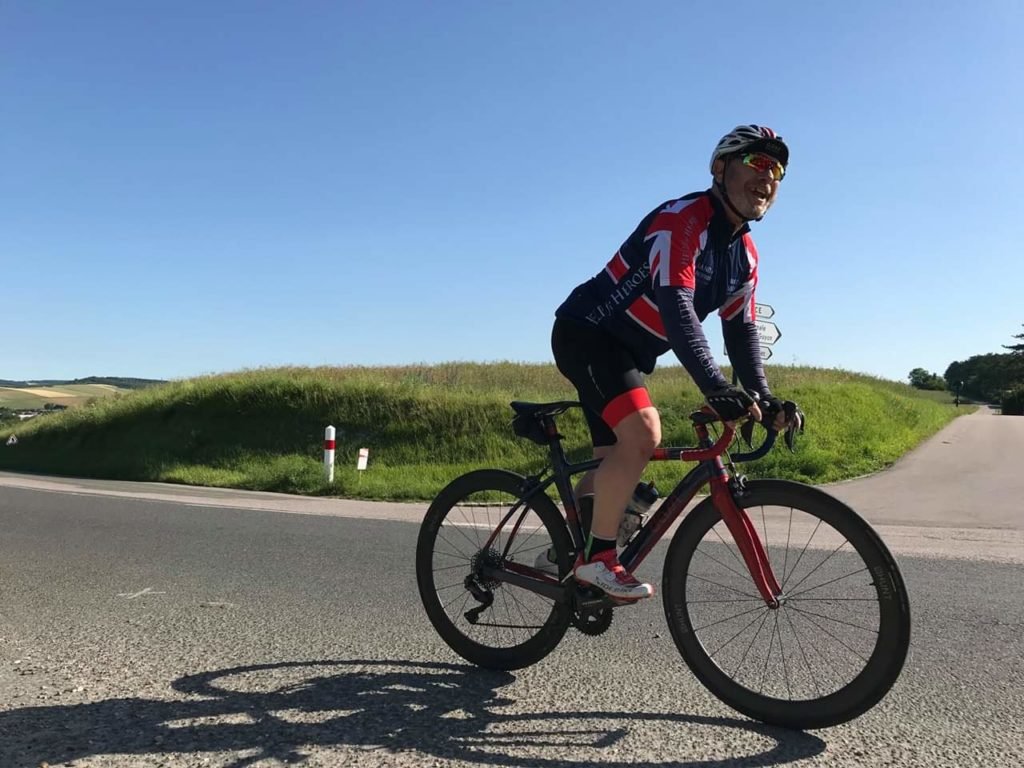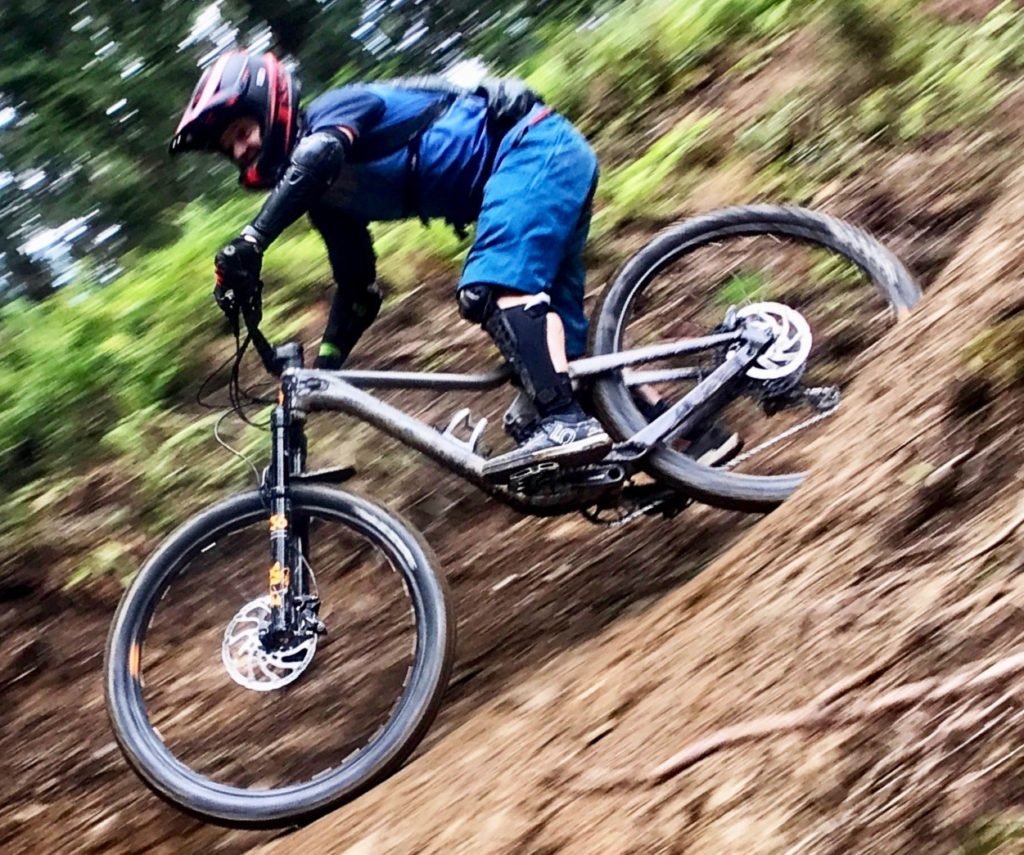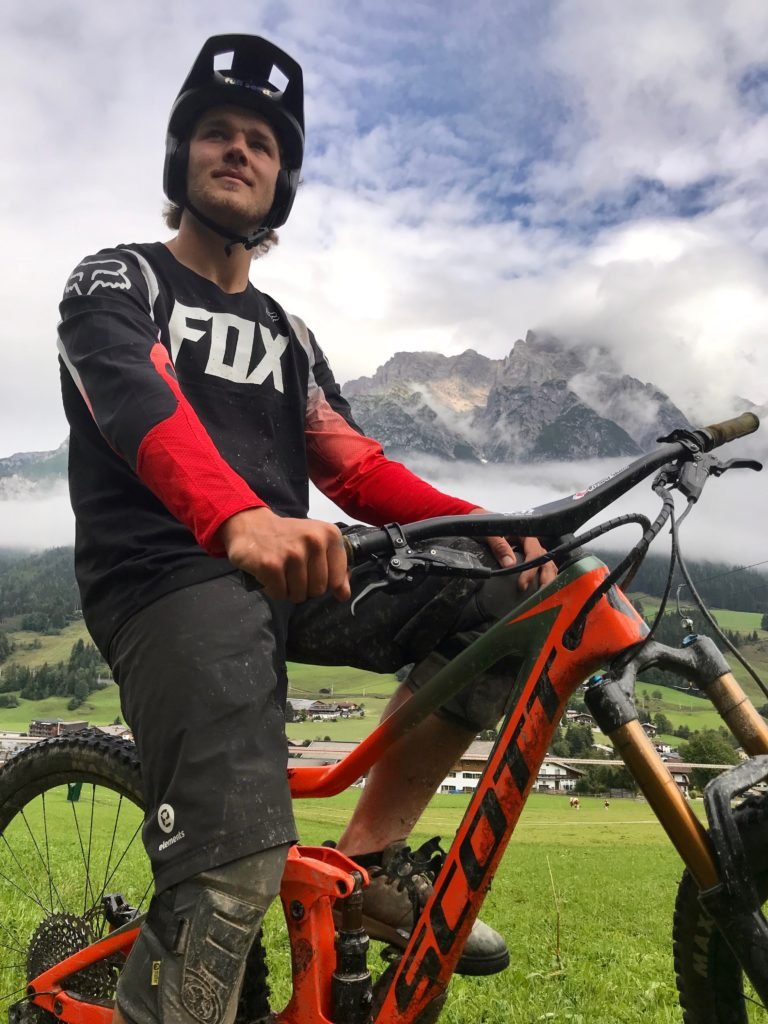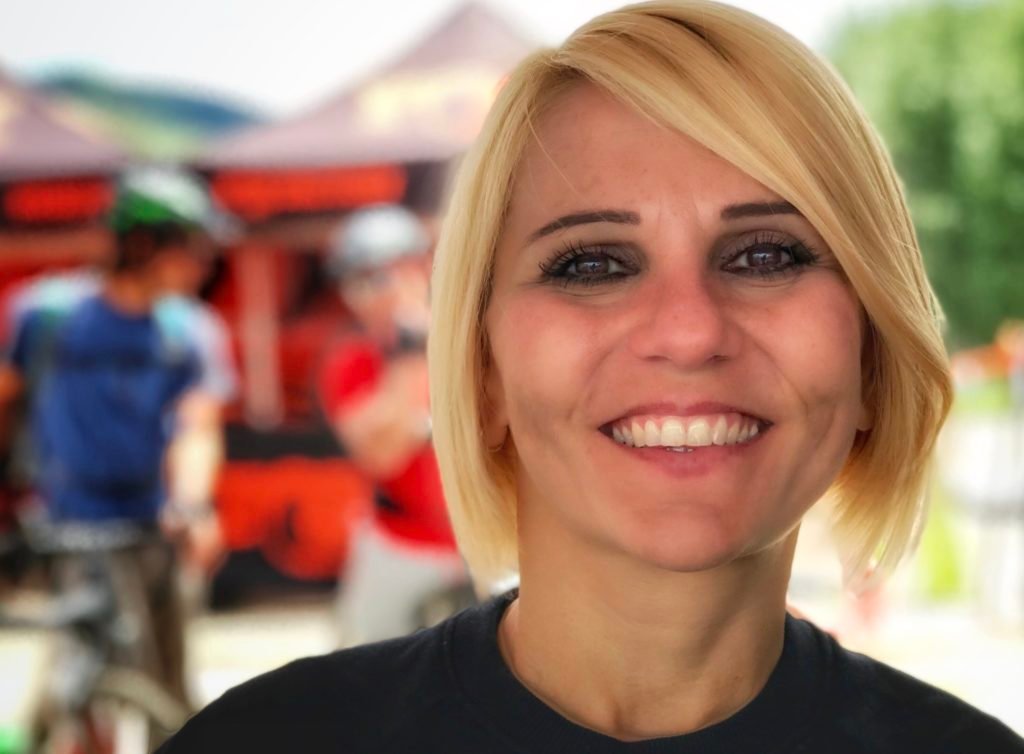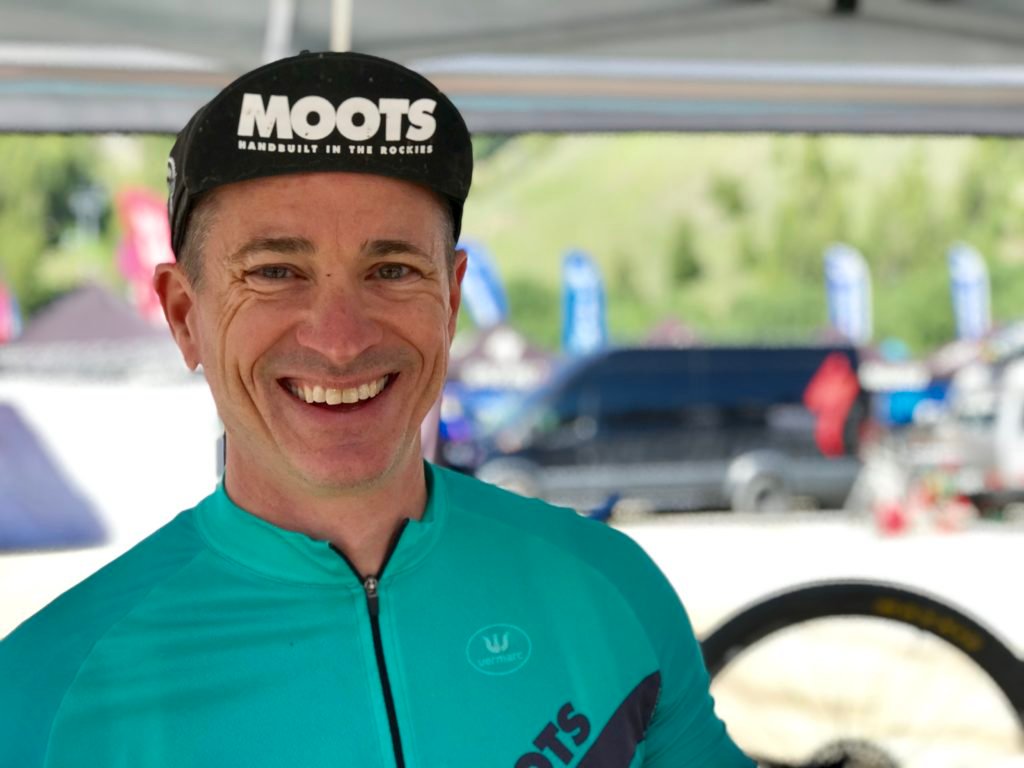Spokesmen Cycling Podcast
Gino Bartali’s Secret Heroism & The Cycling School Inspired By It
Tuesday 8th October 2019
SPONSOR: Jenson USA
HOST: Carlton Reid
GUESTS:
Holocaust survivor Paul Alexander
Canadian journalist Aili McConnon, co-author of Bartali biography, “The Road to Valor”
Gino Bartali’s granddaughter Gioia Bartali
Yuval Markovich, Bartali Youth Leadership School
Dr. Ilana Tischler, director-general, Ben Shemen Youth Village, Israel
Former pro cyclist Ran Margaliot, co-founder of Israel Cycling Academy and Bartali Youth Leadership School
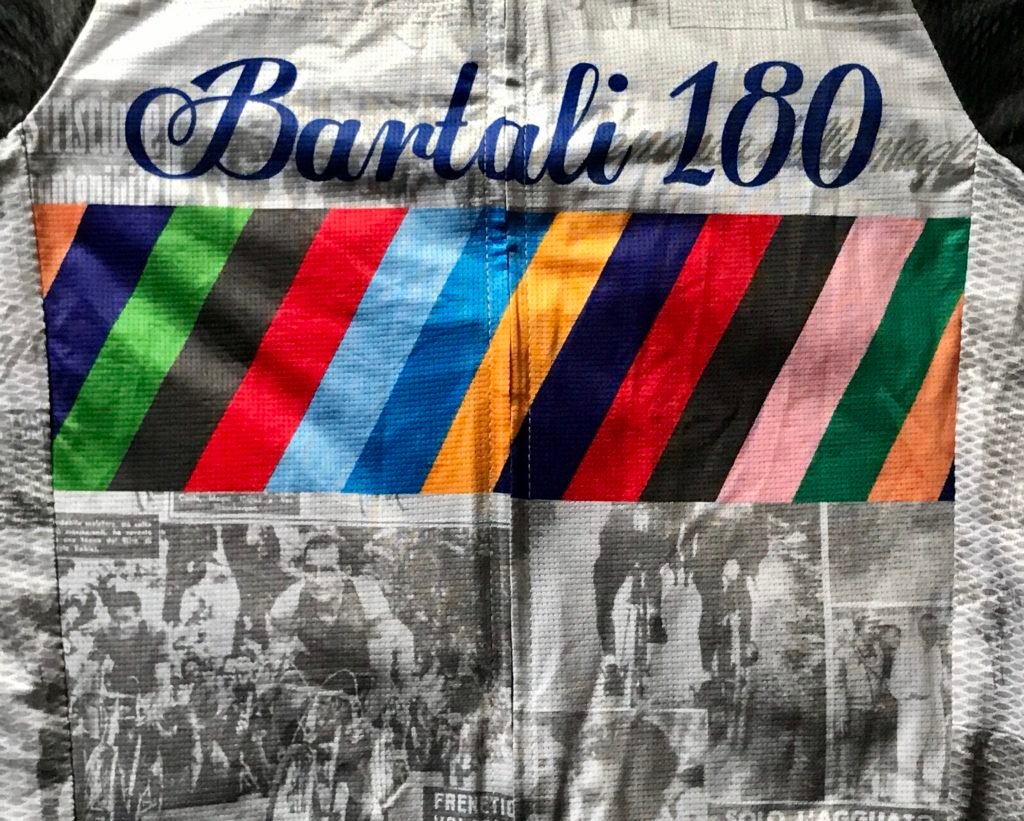
TOPICS:
A 77-year-old secret, a new, cycling-based boarding school that commemorates it, and the kick-off for a 180 kilometre bike ride that retraces its roots.
This episode of the Spokesmen Cycling Podcast is about Gino Bartali’s 1948 Tour de France victory, his secret wartime rides to smuggle fake IDs for Italian Jews, a new Israeli cycling-based boarding school launched in his honour, and the Bartali 180 commemorative cycle ride from Florence to Assisi, retracing Bartali’s mid-1940s training-cum-smuggling route.
TRANSCRIPT:
1948 Tour de France music 0:01
Carlton Reid 0:16
This is the story of a 77-year-old secret, a new, cycling-based boarding school that commemorates it, and the kick-off for a 180 kilometre bike ride that retraces its roots.
Welcome to episode 227 of the Spokesmen Cycling Podcast brought to you in association with Jenson USA, I’m Carlton Reid, and the audio you heard at the top of the show was from a period Italian film about the 1948 Tour de France won by Italy’s Gino Bartali. On the day before the climb which clinched it, Bartali was staying at the Carlton hotel in Cannes when he was called by the future leader of Italy’s Christian Democratic Party and told he had to win a stage or two because it would prevent the outbreak of bloodshed following the attempted assassination of a Communist politician. “I will do even better than that,” promised Bartali. “I WILL WIN THE WHOLE TOUR.”
That Bartali’s against-all-the-odds victory possibly prevented an Italian civil war would be an amazing claim to fame, but more recently, something even more amazing came out about Bartali, a secret that the devout Catholic had kept to his dying day. During the war against Hitler, at great risk to his own life, and that of his young family, Bartali used his fame, and, indeed, his bicycle frame, to smuggle documents that saved perhaps as many as 600 Italian Jews from the gas chambers. We don’t know the exact number, because – for obvious reasons – no records were kept. Despite being one of Italy’s most famous sports personalities, the subject of countless newspaper and magazine articles, and in his later years, a pundit on Italian TV, Bartali never talked about his war heroics, not even with his family.
In this special episode of the Spokesmen Cycling Podcast, I talk to Canadian journalist Aili McConnon, co-author of a Bartali biography. I also speak with Bartali’s granddaughter, as well as a bicycling Holocaust survivor, a bunch of Hebrew and Arabic speaking school kids connected by their love of cycling, and the former pro cyclist who brought all of these folks together in Italy last month.
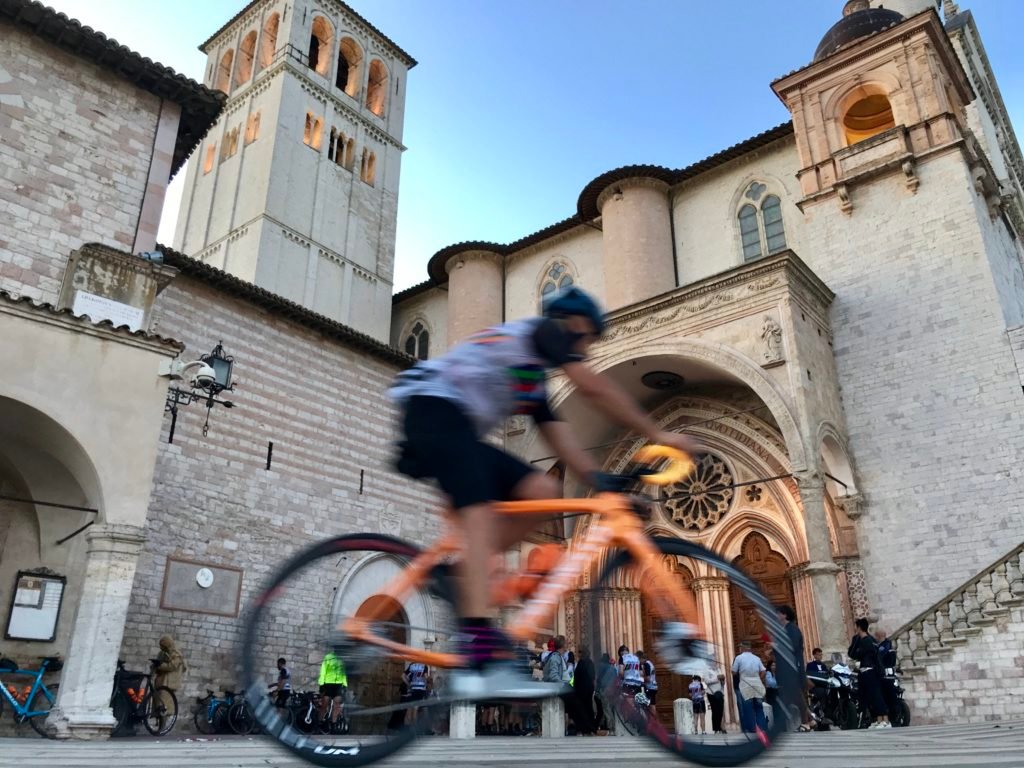
I met them all at the inaugural Bartali 180 which is a new commemorative ride planned to be held annually to celebrate the great man’s deeds. The one-day ride – 180 kilometers if you do the full distance – uses Tuscan roads that Bartali would have trained on close to his home near Florence, and it follows his smuggling route to the monastery city of Assisi which he would have ridden many times during the war, braving Nazi and fascist patrols to ferry counterfeit identification papers for people fleeing what would have been almost certain death.
Paul Alexander 3:40
On this day, the seventh of September 2019, 80 years ago, the Second World War was four days old.
Carlton Reid 3:59
That’s 81-year old Paul Alexander, a Holocaust survivor sent to England as part of the kindertransport, a pre-war rescue effort that separated 10,000 predominantly Jewish children from their parents in Nazi Germany, Czechoslovakia and Poland , placing them in foster care.
Paul Alexander 4:19
It was a war in which close to 20 million men, women and children around the world lost their lives, including 16 million of my own people
Paul Alexander 4:42
The cost of this horrible war would have been considerably greater had it not been for heroes like Gino Bartali, who, at great risk, put the lives of others before their own lives and they enabled countless people to survive the Holocaust. My connection to the Bartali ride is coincidental but it is a very significant event in my life. I’ve always loved cycling since I was a child.
Carlton Reid 5:32
Paul was speaking in the Palazzo Vecchio, or “Old Palace” in the medieval centre of Florence, and he was one of those to launch the Bartali Youth Leadership School on the day before the start of the Bartali 180.
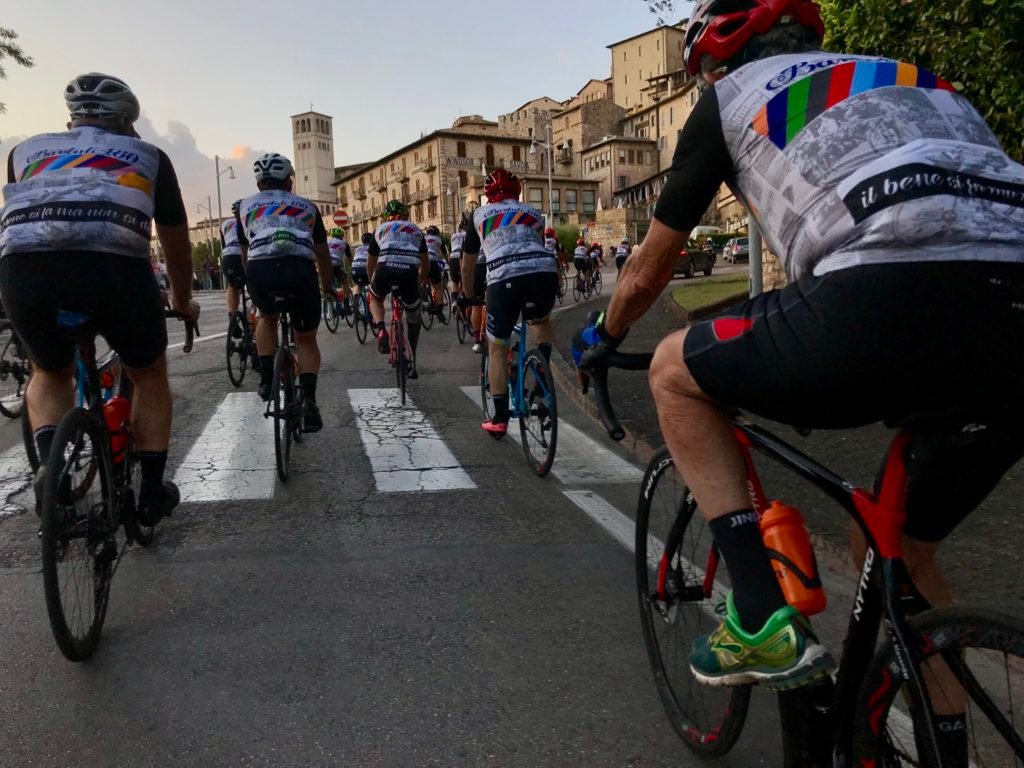
Paul Alexander 5:45
We are eternally grateful for the opportunity for having done this wonderful ride.
Carlton Reid 5:49
Paul rode the Bartali 180 on his Pinarello electric road bike, and I rode next to him on the steep climb up from Assissi to the Basilica of Saint Francis – his power had run down by then (Paul’s not St Francis’) and yet he climbed without battery assistance. Also on that climb was Aili McConnon and earlier she told me how she and her brother revealed Gino Bartali’s secret.
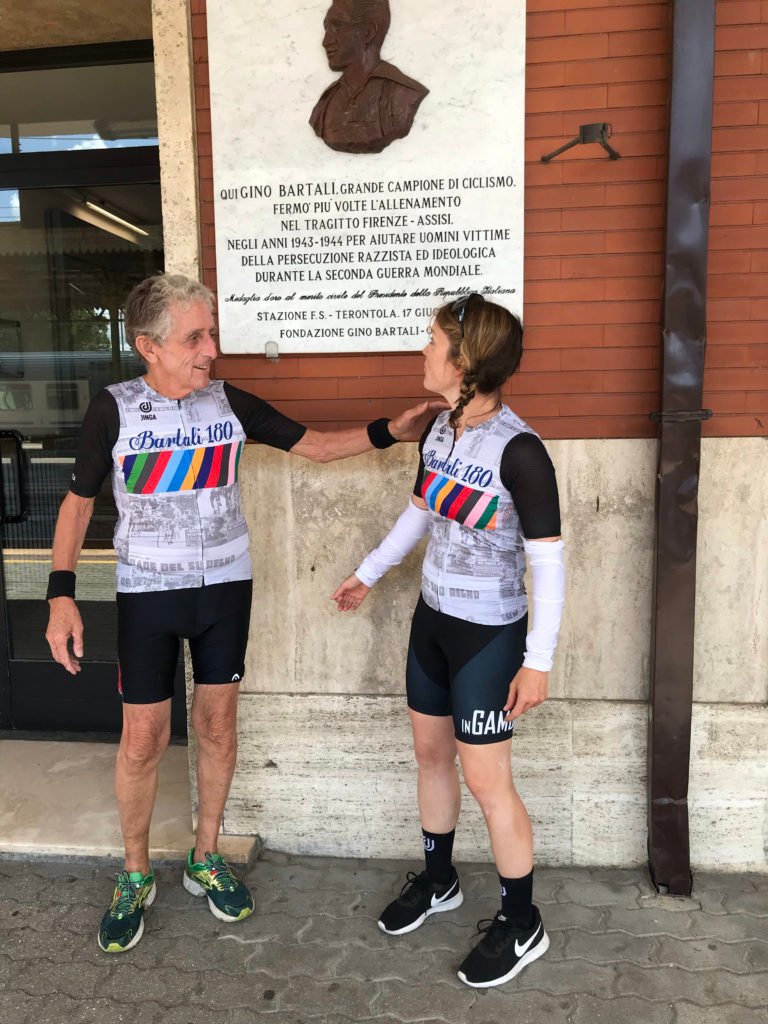
Aili McConnon 6:21
You know, many in Italy, really, up until most recently haven’t talked about what happened during the war. So we started thinking, you know, what did Bartali do during the war? We found a small mention in a Florentine newspaper that he’d helped the Jewish community we said, well, that’s interesting, you know, was he a part of the partigiani was he a part of the resistance, what was he doing? And tracked down his son and reached out to him and you know, he gave us a little bit of a nugget of the story that, yes, he helped the community, he carried documents. And I think it was at that point we realised that this is sort of the story of a great sports hero, but then also a humanitarian.
Carlton Reid 6:56
Gino the pious, as he was nicknamed by contemporary newspapers, is lauded in Italy as a legendary sports champion, famous for his fierce rivalry with Fausto Coppi. Then, and even today, many Italians identified as supporters of either Coppi or Bartali, there was no middle ground and no love lost between the factions. Since the gradual unraveling of his secret from 2010 or so, there has been a non-sporting reason to favour Bartali as the more historically significant of the two but Gino the Pious never spoke about his wartime exploits.
Aili McConnon 7:32
The reason why he helped, or at least my best understanding, came from his widow, Adrianna Barteli, who was alive when we were researching the book, you know, and she said that, you know, he was so aware of the immense contribution so many Italians had made and, you know, many had been tortured, many had been killed, you know, and he thought he did his part, but he didn’t want to overshadow you know, those who have done so much during the war. So, I think, you know, he was happy to be known for his cycling accolades, but did not want, you know, his cycling fame, you know, consequently to, you know, then make him into a bigger war hero, and, you know, some very regular people who did so much but wouldn’t be you know, as widely publicised, because they’re just everyday citizens
Carlton Reid 8:27
I asked Aili whether Bartali’s secret story – fighting fascists – had resonance today.
Aili McConnon 8:34
It is, you know, very, very concerning, you know, the sort of pockets of anti-semitism that you see popping up around the world and, you know, the fact that you do have a choice, and it certainly would have been much easier, much more convenient and safer for him not to do anything. You know, he was certainly risking his own life, his family’s life, you know, and yet he kind of stood up to do what he felt was right.
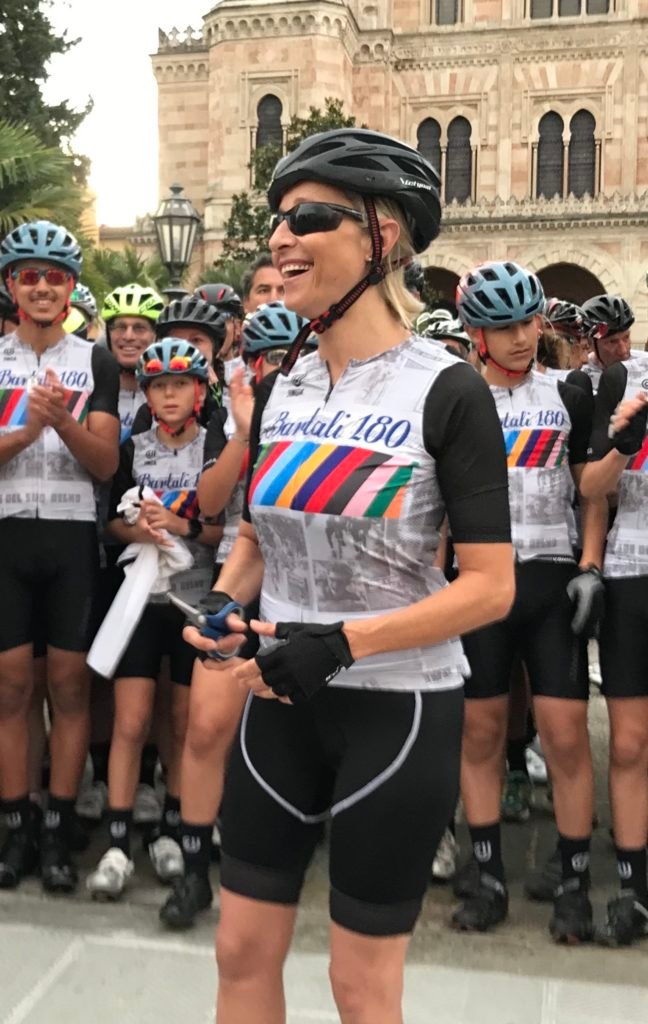
Gioia Bartali 8:54
Because of my grandfather, he, he think … sorry, for my grammatical verbs is …
Carlton Reid 9:04
That’s Gioia Bartali, Gino’s granddaughter, and as I told her at the time, her English is far better than my Italian.
Gioia Bartali 9:13
He don’t say any words with the son and with his wife. Okay? Because if you make good to other person, you take it in his heart.
Carlton Reid 9:34
Gioia was also on the Bartali 180, which, as well as continuing next year as an annual ride, was the launchpad for the multi-faith Bartali Youth Leadership School, a new, cycling-focussed boarding school that opened its doors last month.
Gioia Bartali 9:51
I am very happy because we don’t forget my grandfather, I think it is a beautiful project.
Carlton Reid 10:00
The school, based at the longstanding Ben Shemen youth village in Israel, has started with six students, ranging in age from 13 to 16.
Yuval Markovich 10:11
It’s very fun to live together.
Carlton Reid 10:15
That was Yuval Markovich, a 14-year-old from a village on the Israeli side of the Gaza Strip.
Shimon Amir 10:20
My name is Shimon Amir. I am 16 years old, and I am from Gush Etzion.
Carlton Reid 10:28
The kids got mountain bikes on the first day of term, and before, during and after their academic studies they ride together in the Ben Shemen forest close to the school, which just so happens to have a 32 kilometer singletrack mountain bike trail snaking through the trees. Interestingly, these aren’t all Jewish kids: there’s Adan Ziadane, a 15-year-old from a small town near Nazareth – her father didn’t want her to leave home, but, bravely, she insisted. And there are kids from Israel’s Druze community, a close-knit Arabic-speaking sect. The plan is for the kids enrolled at the Bartali Youth Leadership school to use cycling as a way to bridge cultural divides and celebrate diversity, imbibing life skills such as self-discipline and teamwork. The kids are also taught the importance of caring for others, the same sort of selfless humanity practiced, in secret, by Bartali. Despite varying abilities, they stuck together on the Bartali 180, riding as a team. In the Palazzo Vecchio I learned more about the boarding school’s campus from its director-general Dr. Ilana Tischler
Dr. Ilana Tischler 11:41
The village was established in 1927 by Dr. Siegfried Lehman who came from Europe with a group of kids to Israel. He looked at three main goals: quality education, love to the land of Israel and values of work and pluralism. And since then, till today – we’re talking 92 years – we have quality education, we have love to the land, we are an agricultural farm, and work and we have pluralism: we have Jewish students and non-Jewish students. We have excellent students, and we have learning disability students, so we accept each child as long as we can give him the right venue to succeed. And the six children are here participating in this event are three Arab and Druze kids and three Jewish kids. These six are in different groups in Israel that we know they like to cycle we know they practice, and in order to become champions, they will need like an American college support, you know, enough practice, enough academic support, enough sleep, the right nutrition, sports psychologist, whatever you need in order to make them professional sports cycling.
Carlton Reid 12:56
And some pay, like the full amount, and then some got like scholarships that sort of thing?
Dr. Ilana Tischler 13:04
Our village is supported by the Israeli Ministry of Education, and the tuition is determined by the income of the parents 50% of our children do not pay.
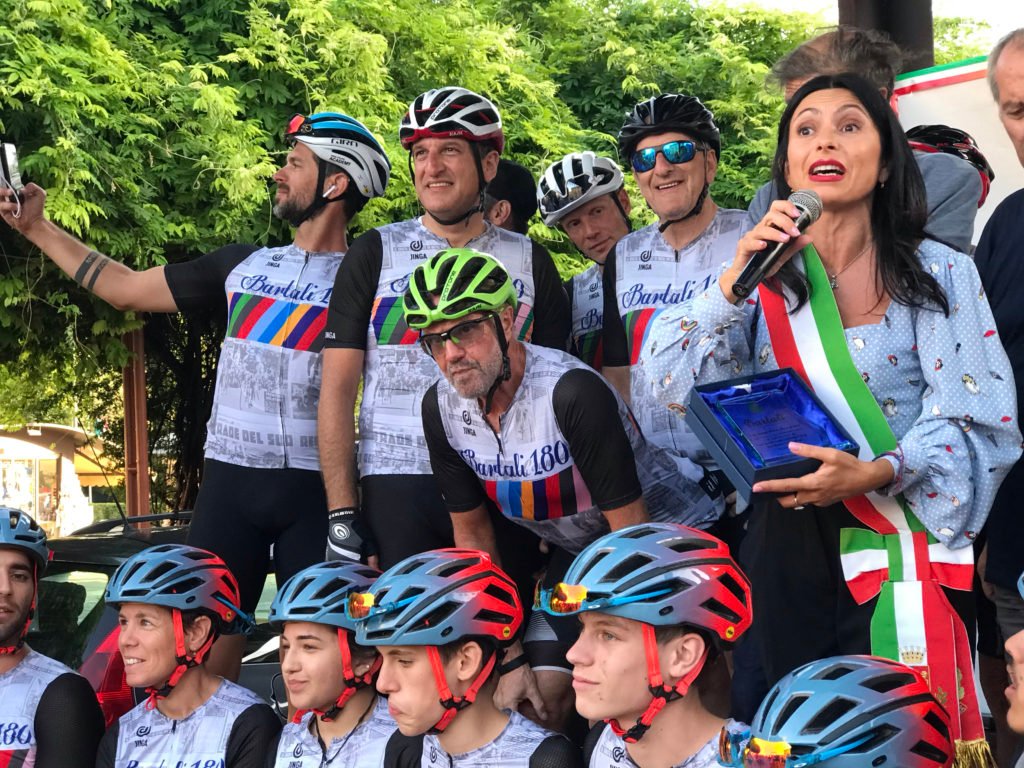
Carlton Reid 13:16
The founder of the Bartali Youth Leadership School is former professional cyclist Ran Margaliot, who was also the co-creator of the Israel Cycling Academy, the Pro Continental team which has recently taken over the Katusha-Alpecin squad, bumping it up to WorldTour status, and therefore becoming a shoe-in for the world’s major stage races. Wadee Asakly, a 13-year-old from the Druze village of Maghar, wants to ride in the Tour de France, he tells all who will listen, and his dream is perhaps now more achievable thanks to the support and coaching he’ll get from Margaliot and other ex-pros at the Bartali Youth Leadership school. Former Team Saxobank rider Margaliot never got to ride in the Tour de France.
Ran Margaliot 14:01
My own life dream when I was young at their age was to ride a Tour de France one day, you know, I thought this is the greatest thing a cyclist can do and no one from Israel has ever done that. And I got somehow this crazy dream in my head that I’m going to be the one who will do it and then somehow break a path for next generation. I chase that dream for some years. We didn’t have any, you know, real support system in Israel back then for cycling; cycling was not a major sport in our young country. So I had to travel to Europe at a young age, and you know, learn, you know, everything by myself. And obviously, I had many, many people who supported me along the way. And, you know, I always find small teams to rider with, but I had to learn it all. And I made it you know, to a certain level, but I wasn’t good enough and will never achieve my dream to race the Tour de France.
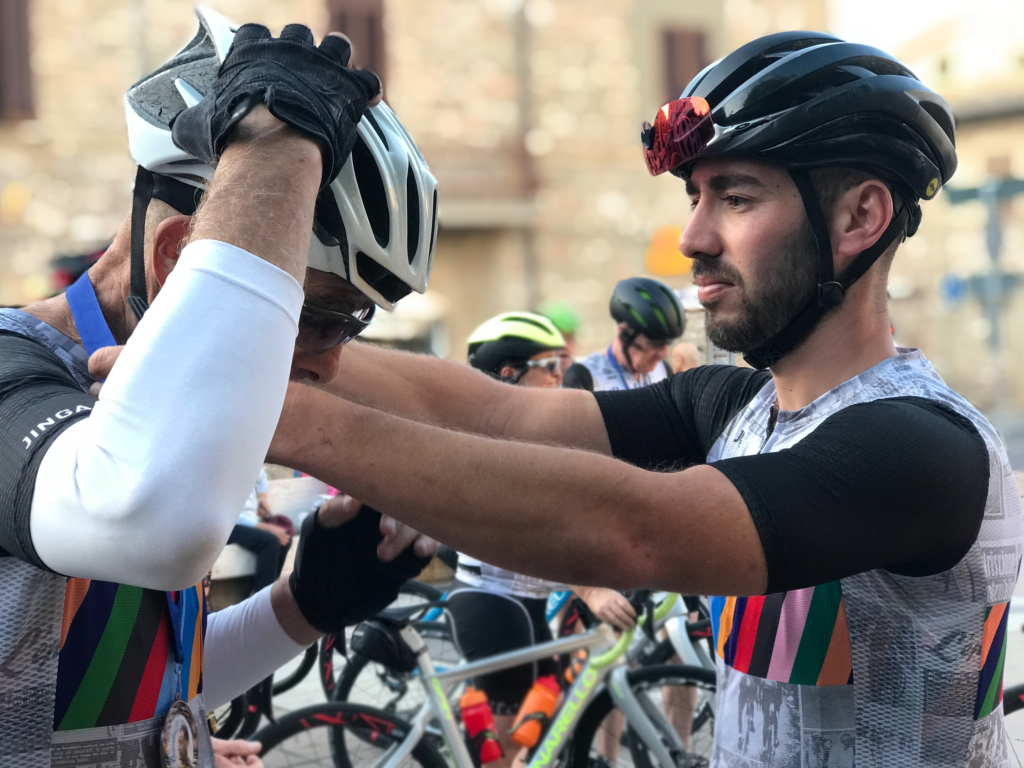
My, my second, the second version of my dream of making the Tour de France and if I couldn’t make it myself as a rider, so I going to start to Israel’s first pro cycling team, we gonna make it with the next generation.
That was the end of 2014. We’ve launched the project of Israel Cycling Academy, which nowadays is one of the largest in the second tier of the sport.
You know, my original reason I wanted to become a cyclist and Tour de France myself and the reason I started the team was not what was needed to to make this team successful anymore, you know, and what I saw as a young 16-year-old guy coming from Israel dreaming to be in the Tour de France is that by doing so I will be able to inspire other young cyclists and by inspiring those cyclists I was aiming that maybe they will be able to follow a similar path that I that I’ve I’ve had that they will be able to experience what I felt that cycling did for me, you know, it completely changed my life, I owe everything to cycling really, I met the most amazing people in my life to cycling, through cycling I, I went through life changing experiences, you know, I got I got to learn so much about myself through the sport and I knew I want to focus on the grass-roots, you know, I wasn’t sure what I’m going to do whatever you want to do with new grass-roots matters to me, it was what inspires me in the first place to help shape the lives of young people through cycling through the sport.
And I had that crazy idea that I want to turn cycling into an accessible sport, you know, as opposed to what it is such a logistical expensive sport that only people, only kids who you know has the means can practice. Since it was a sport of the kids will discover through school, you know, you’re coming to your school every day is an obligatory you know, mandate mandatory learning learning facility or institute that every kid has to go through, day in day out.
So I came back to the planning board and I was I started consulting with a few good friends of mine said you know, if you really want to put bring cycling into schools, it will not happen with a regular school system. Because you know, kids go to school from let’s say, eight to three o’clock, you know, you have no room for any any other activity really, if you want to host you know, even just want to store a bike in school is going to be so complicated, how are you going to maintain them.
And then from, from friends from word of mouth, we got offered to start a programme in a boarding school – in Israel we call them Youth Villages.
Some of those kids are not coming from the best backgrounds, you know, so like, if I tell them, you know, there’s that maybe even an Israeli Pro Cycling Team that is racing in, in, in, in, in when you when you can get there when you’re 19 or 20 or 21 that’s for ever for them, you know, they’re 14, there’s you know, there are kids are there, they wake up maybe at 6am in the morning to train, which is an achievement, their friends wake up at 7.30 and go smoking, you know, if if you don’t give them something that they can do tomorrow, then forget about it, really, I mean, 19 is who knows what’s going to happen til then.
So we knew we have to start a programme that is focusing on excellence, which will be accessible for those kids that and we knew that we want to put that the main narrative should not be how how it creates racers, you know, we should we should be how, how we how we can really use cycling to change youth lives.
And I think it was a natural decision to name the programme after Gino Bartalli, you know, based on those those assumptions that we are not looking to create champions, it might be added value, yes or no. But we’re really looking to create champions in life.
Carlton Reid 18:26
As a kid growing up, Margaliot didn’t pay much attention to the Holocaust, despite the fact his grandfather, Avraham, was one of the world’s leading Holocaust scholars
Ran Margaliot 18:37
He was, I believe, one of the first or the first researcher of the Holocaust he was he was born in Germany moved to Israel just before the before the war. And before Israel was established in 1948, already in 1947, just when the war the war ended, he decided he has to start documenting, gathering evidence so it won’t be erased.
So he travelled to Germany, which was not allowed at the time, it was dangerius obviously, to start research. There’s a department in Yad Vashem called on his name, his name is Dr. Avraham Margaliot.
I didn’t know him, he passed away a year before I was born. And but but I think the crazy thing is I didn’t want to know anything about the Holocaust. Until I found out about Bartali. Despite what my grandfather, you know, focus was, I mean, he, he dedicated his life to, to, to remembrance of the Holocaust, I mean, he was he was a professor, and he was, you know, he was a researcher, and he wrote books and, and this this was his thing and I didn’t want to know anything about it because, for me, it was that sad story that happened so many years ago and and as a kid, or you know, or even as a young adult, we don’t want to learn you don’t want to hear about it at all. I mean, I thought, you know, this is nothing to do with me.
The only the only reason I started asking myself questions and learning about wanting to learn about the about the Holocaust was Bartali because he was a hero I could relate to because I was a cyclist. The mission is to get people to know and to ask questions to ask themselves. You know, for me the just the perfect question, I would like to ask, would I do the same thing as Bartali?
Would I be willing to to, to get up out of my comfort zone to help a person you need to do the right thing, would I risk my life for someone that don’t even know, that I have nothing to do with?
Carlton Reid 20:25
Five years ago, 13 years after his death, Bartali was recognized as “Righteous Among the Nations” an honourific given by the State of Israel to those non-Jews who risked their lives during the Second World War to save Jews from extermination by the Nazis..
Ran Margaliot 20:42
This is special for me, this is part of what Bartali did, you know, he was riding alone on those roads, delivering fake documents, fake IDs, inside his bike tubes on behalf of someone who, who thought he might be the right guy to do so. We in one way or another, we’re delivering his message too today to thr world, doing the right thing.
Carlton Reid 21:12
If you’d like to learn more about the Bartali Youth Leadership School there’s a video and a bunch of links on the show notes at the-spokesmen.com
While the inaugural Bartali 180 was staged in September, the 2020 ride will be held in mid-June. It’s a multi-day, non-competitive event that includes warm-up rides in the Chianti hills near to Florence and, at the end of the 180 kilometre ride on the Sunday there will be a guided visit to the monastery and print shop where Bartali picked up the fake IDs to stuff into his frame.
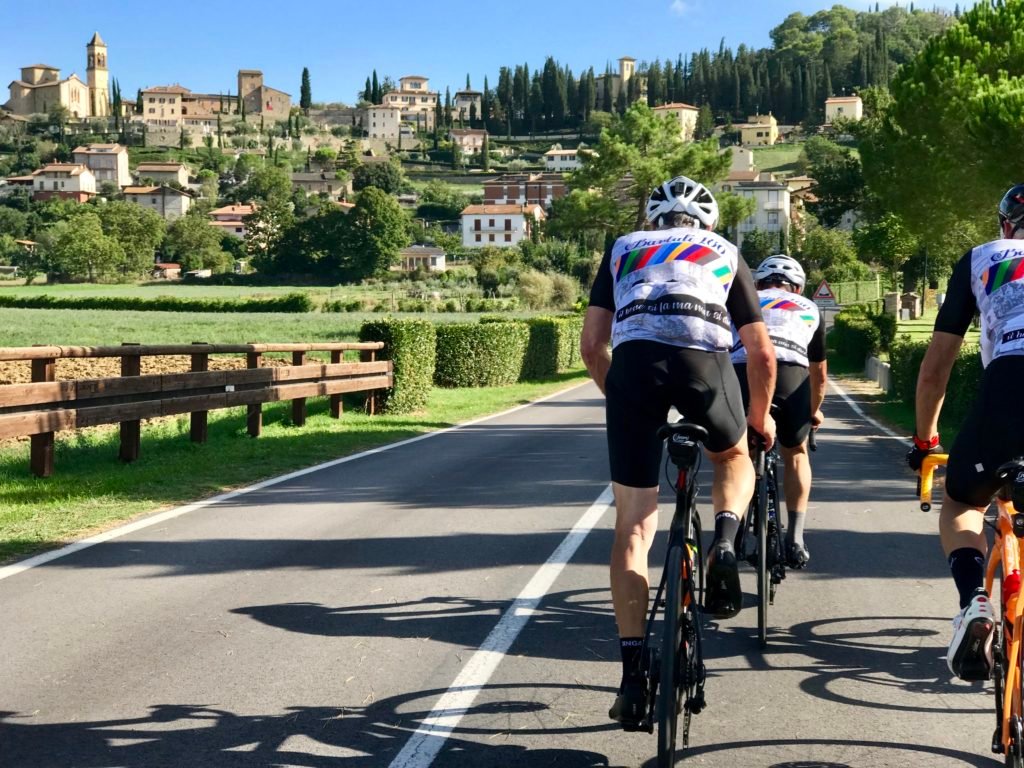
It’s a special ride, fully supported with team cars from high-end cycle holiday company Chronoplus, and the 180 kilometres fly by.You can opt to do short distances, with everybody joining together for the final climb from Assisi to the Basilica of Saint Francis.
Thanks to Ran for inviting me. The next episode of the Spokesmen Cycling Roundtable podcast supported by Jenson USA, will be out in two weeks or so. Meanwhile get out there and ride.
